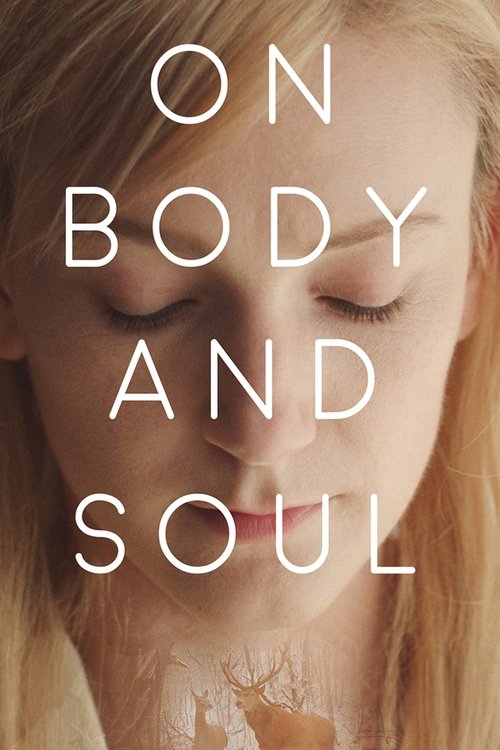
Title: On Body and Soul
Year: 2017
Director: Ildikó Enyedi
Writer: Ildikó Enyedi
Cast: Alexandra Borbély (Mária),
Morcsányi Géza (Endre),
Réka Tenki (Klára),
Ervin Nagy (Sándor),
Zoltán Schneider (Jen?),
Runtime: 116 min.
Synopsis: Two introverted people find out by pure chance that they share the same dream every night. They are puzzled, incredulous, a bit frightened. As they hesitantly accept this strange coincidence, they try to recreate in broad daylight what happens in their dream.
Rating: 7.241/10
The Silent Symphony of Souls: A Meditation on Connection in "On Body and Soul"
/10
Posted on July 20, 2025
Ildikó Enyedi’s On Body and Soul (2017) is a haunting exploration of human connection, weaving a delicate tapestry of dream and reality in a setting as unlikely as a Budapest slaughterhouse. The film’s brilliance lies in its ability to transform this raw, visceral backdrop into a stage for profound intimacy, largely through Enyedi’s deft direction and the understated power of its leads, Alexandra Borbély and Géza Morcsányi. Their performances as Mária and Endre, two emotionally guarded souls linked by shared dreams of deer in a snowy forest, anchor the film’s quiet intensity. Borbély’s portrayal of Mária, a quality-control inspector with autistic traits, is a masterclass in restraint her rigid movements and halting speech convey a woman both trapped and yearning, while Morcsányi’s Endre, a reserved financial director, exudes a weathered warmth that softens the film’s stark edges.
Enyedi’s direction is the film’s heartbeat, balancing the mundane brutality of the slaughterhouse with the ethereal beauty of the dream sequences. These contrasting worlds flesh and spirit are not merely juxtaposed but interwoven, suggesting that love, like life, emerges from the tension between the corporeal and the transcendent. The screenplay, also by Enyedi, is sparse yet deliberate, allowing silences to speak as loudly as words. However, this minimalism occasionally falters; the secondary characters, such as the psychologist probing the workers’ dreams, feel underdeveloped, their roles more functional than fully realized, which slightly disrupts the film’s emotional flow.
Cinematographer Máté Herbai deserves praise for crafting visuals that are both clinical and poetic. The slaughterhouse scenes, with their cold, metallic sheen, contrast sharply with the dreamscapes’ soft, snow-dusted serenity, creating a visual language that mirrors the characters’ inner lives. The absence of a traditional score, relying instead on ambient sounds and Laura Marling’s haunting “What He Wrote,” amplifies the film’s emotional rawness, though at times, the lack of music leaves certain scenes feeling overly austere.
What makes On Body and Soul remarkable is its refusal to romanticize connection while still celebrating its possibility. Enyedi doesn’t shy away from the awkwardness, pain, or even absurdity of two broken people reaching for each other. The film’s climax, both tender and unsettling, challenges viewers to confront the fragility of intimacy. While not flawless, its imperfections are part of its humanity, making it a deeply affecting study of souls seeking solace in a world that often feels too coarse for such delicate bonds.
0
0
